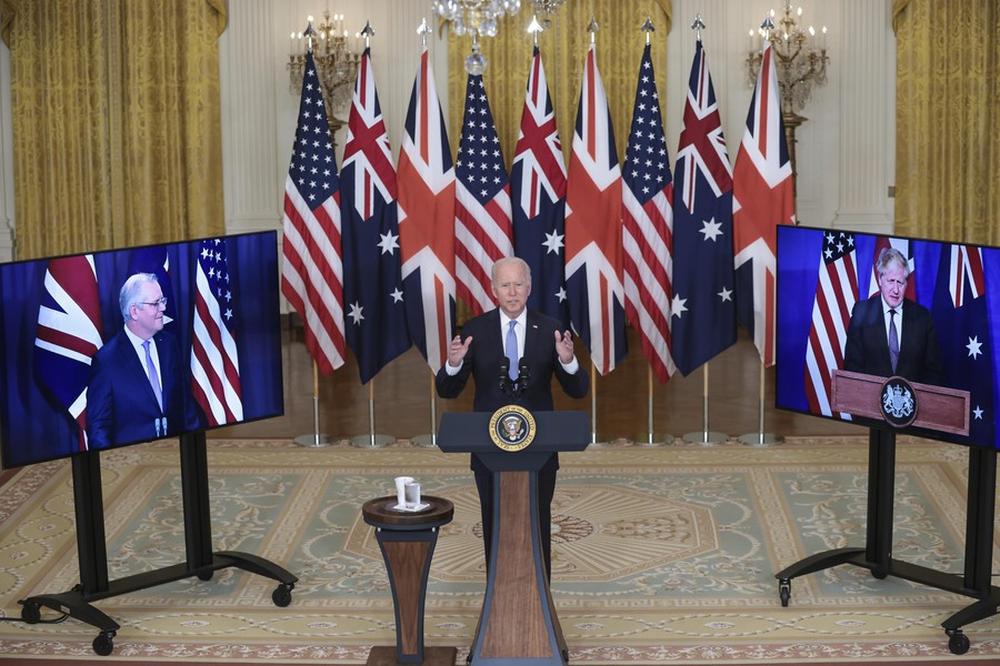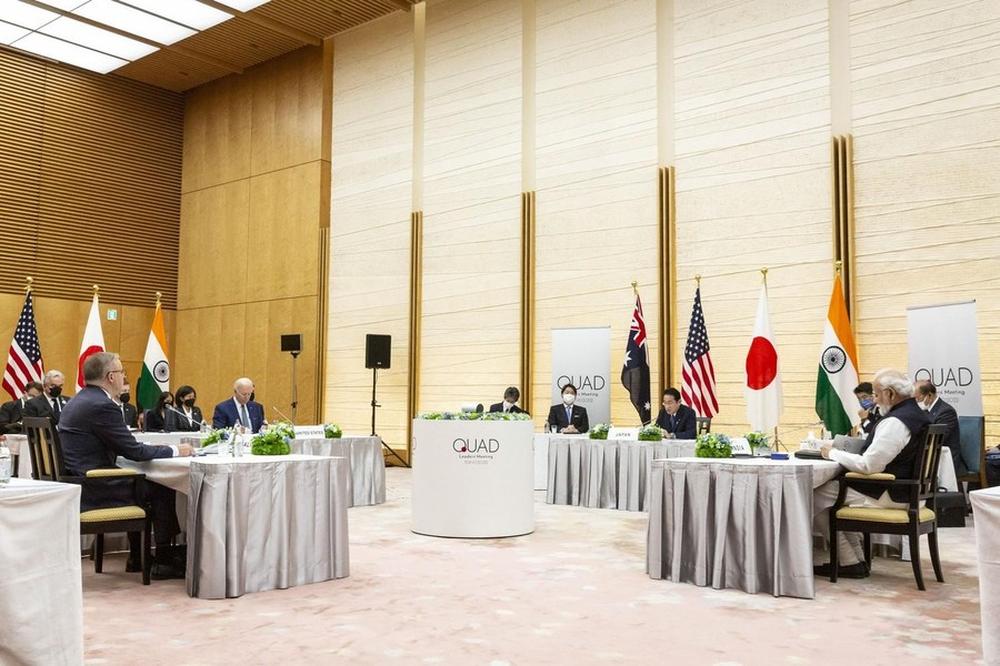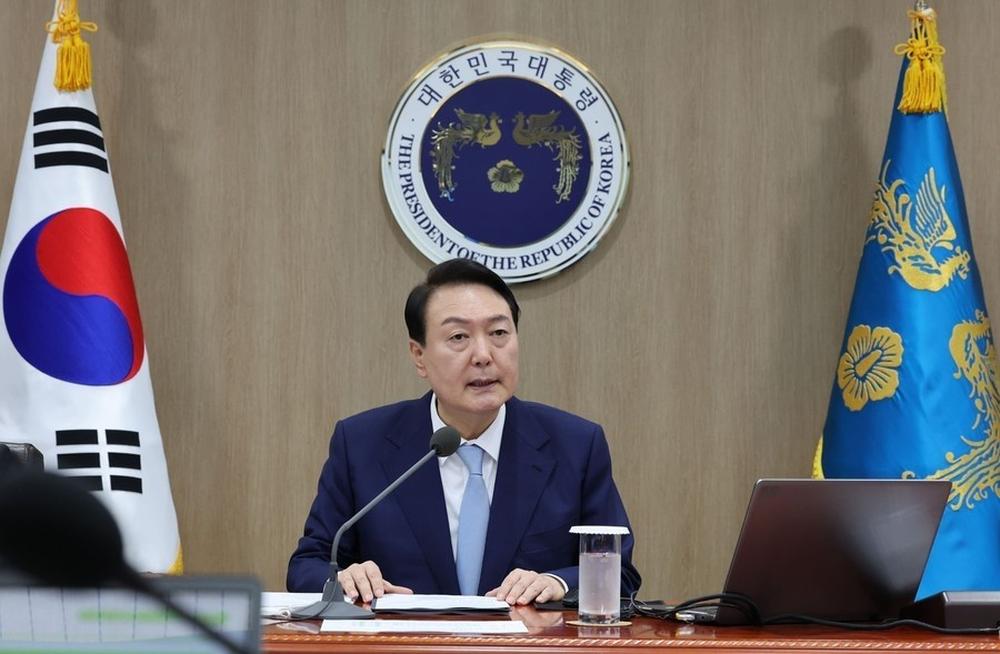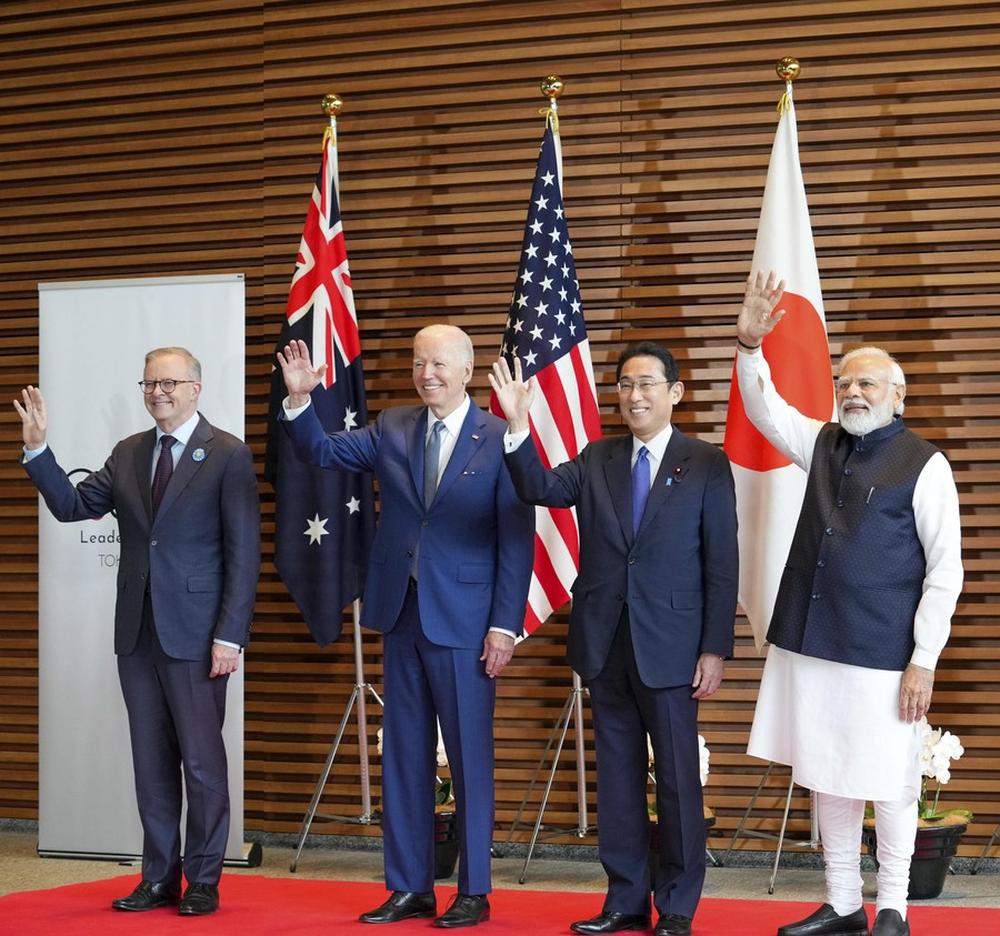- #Global Issues
- #Multilateral Relations
- #South Korea
- #US Foreign Policy

► South Korea has no option but to engage with the QUAD and AUKUS in a way that enhances its own security, strengthens relations with like-minded partners, and hopefully contributes to the stability of the region.
► Ultimately, linking with the Quad and AUKUS will provide South Korea with a stronger basis with which to enhance its role as a key regional and, increasingly, global actor.
South Korea is a key player in East Asian and Indo-Pacific affairs. This ought to be the starting premise of any analysis about Seoul’s foreign policy and security strategy, including on the issue of how to promote regional security cooperation. It is a premise that needs to be reiterated as often as necessary, to dispel outdated notions of South Korea as a shrimp or the misplaced idea that it is a dolphin that simply needs to skillfully navigate Sino-American competition. As a key regional actor, the expectation is that South Korea will be actively involved in Indo-Pacific affairs.
In recent years, the Quad and AUKUS have started to shift discussions about the geopolitics and security dynamics of the Indo-Pacific. Certainly, both of these organizations are more talk rather than action as of July 2022. But they have ambitious plans to reshape the security of the Indo-Pacific. South Korea’s ally, the US, is at their heart. And important security partners such as Australia and Japan are part of them. Simply put, South Korea has no option but to engage with them in a way that enhances its own security, strengthens relations with like-minded partners, and hopefully contributes to the stability of the region.
Let’s start with the Quad. As time goes by, it is becoming clear that its short- and mid-term future plans involve strengthening links among the group’s members and providing public goods to Southeast Asia. Hence the current focus on technology and supply chains, as well as vaccines.
South Korea lies at the center of regional and global supply chains for the most advanced semiconductors, electric batteries, or green ships. The country is also becoming one of Asia’s key vaccine manufacturing hubs. It has the work cut out for itself when it comes to working together with the Quad, whose members cannot lead in these areas without collaboration with third parties. Both former president Moon Jae-in and the recently inaugurated Yoon Suk Yeol see this. It makes sense for the South Korean government to ensure that the country’s firms and its diplomats are involved in the working groups that the Quad is setting up, together with the group’s partners.
Some may question why South Korea should be part of Quad-Plus initiatives. But this is the wrong question. The question is why it should not. For working together with Quad partners will give South Korea a seat at a table that will help shape the security—and economic—environment across the Indo-Pacific. Plus, let’s not forget, there will be material benefits for South Korean firms involved in Quad-Plus initiatives. In other words, Seoul will obtain tangible benefits from working together with the Quad.
This will also help South Korea to prepare to take a decision on whether to formally join the Quad. In the long run and if Seoul works together with its members on a sustainable basis, it would make sense to become part of the group.
But it should be noted that the Quad is not a unified voice. India, for example, has refused to join the three other group members in sanctioning Russia following its invasion of Ukraine. And Australia and Japan are members of the RCEP that also includes China, and now have to contend with whether to accept Beijing in the CPTPP or not. The US and India, on the other hand, are nowhere close to joining any of these two trade agreements. The point is that if South Korea one day joins the Quad, it will continue to have independence of action in foreign affairs. This makes eventual membership of the group a more appealing prospect.
The question of how to cooperate with AUKUS is trickier. The main goal of this group is to provide Australia with nuclear-powered submarines, in a clear attempt to contain China. But its three members are also discussing broader military cooperation, for example through technology sharing or joint research. At the risk of oversimplifying, the pact will essentially allow Australia to get highly advanced US military technologies. Clearly, the Xi Jinping government sees this is a threat.
It is no secret that South Korea is after nuclear-powered submarines, particularly as it dithers on whether to develop an aircraft carrier. But regardless of whether the US would be willing to build this type of submarines for the ROK Armed Forces to use or not, it makes sense for Seoul to show its willingness to work together with AUKUS members in the areas of technology sharing and joint research. This would allow Seoul to get access to more advanced US technologies and know-how, and to build ties with Australia, especially, and the UK—two countries with similar military capabilities to those of South Korea.
We should note that AUKUS has indicated its willingness to work with partners across the Indo-Pacific and beyond. South Korea is among a small group of countries also including Canada, France, or Japan that are best placed to work together with AUKUS. They are trusted partners, with strong capabilities, and looking to upgrade and modernize their militaries. Therefore, it makes sense for the Yoon government to state that it stands ready to take AUKUS on its offer.
As I personally had the chance to witness during the NATO Public Forum held in parallel to the Madrid NATO Summit, the US and Europe stand ready to work together with their Indo-Pacific partners. And Australia, Japan, and South Korea are at the top of the list since they share values and possess strong military and economic capabilities. Whether it is cyber security, tech alliances, or maritime and space security, South Korea is a welcome collaborator and should grasp the opportunity to work with its partners. This includes the Quad and AUKUS.
Some may argue that this will anger China and is thus not a sound policy for South Korea to pursue. But Beijing will find a reason to be angry with Seoul anyway. Whether it is the deployment of THAAD, joining the Indo-Pacific Economic Framework, or asking the WHO to conduct a new investigation on the origins of COVID-19, China will sometimes clash with South Korea. Yet, no one is advocating for Seoul to “choose sides” between Washington and Beijing and simply follow a confrontational approach towards the latter. Even the Joe Biden administration has realized that this does not work beyond the confines of a handful of think tank papers and discussions.
Thus, South Korea should see the opportunity to work more closely with the Quad and AUKUS as a chance to promote regional security cooperation, obtain some tangible benefits, and, essentially, pursue its own interests but together with countries that share those same interests. Ultimately, linking with the Quad and AUKUS will provide South Korea with a stronger basis with which to enhance its role as a key regional and, increasingly, global actor.
Ramon Pacheco Pardo is Professor of International Relations at King's College London and the KF-VUB Korea Chair at the Brussels School of Governance of Vrije Universiteit Brussel. He is also King's Regional Envoy for East and South East Asia, helping to shape and implement the university's strategy for the region. Prof Pacheco Pardo is also Adjunct Fellow (Non-Resident) with the Korea Chair at CSIS, Non-Resident Fellow with Sejong Institute, and Committee Member at CSCAP EU. He has held visiting positions at Korea University, the Lee Kuan Yew School of Public Policy, and Melbourne University. His publications include the books Shrimp to Whale: South Korea from the Forgotten War to K-Pop (Hurst and Oxford University Press, 2022) and North Korea-US Relations from Kim Jong Il to Kim Jong Un (Routledge, 2019). Prof Pacheco Pardo has been editor of Millennium: Journal of International Studies and currently sits in the editorial boards of East Asia: An International Quarterly, EU-China Observer and Global Studies Journal. He has participated in track 1.5 and 2 dialogues with South Korea, North Korea, China, and Japan. Prof Pacheco Pardo has testified before the European Parliament and advised the OECD, the European External Action Service, the South Korean Ministry of Foreign Affairs, and the United Kingdom’s Cabinet and Foreign & Commonwealth offices. He is a frequent media commentator on North East Asian affairs and EU-East Asia relations.


